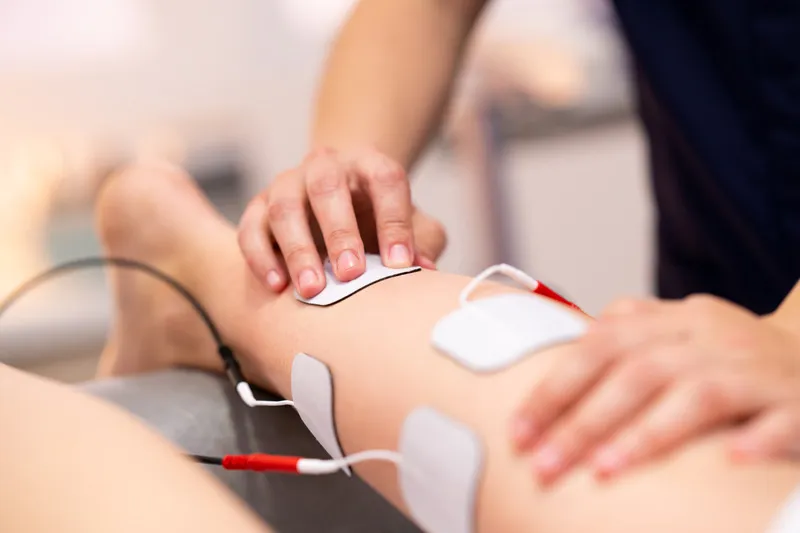EMG and Nerve Testing
Electromyography (EMG) and Nerve Testing Clinic in Kenosha and Burlington, WI

What is Electromyogram (EMG)?
An electromyogram (EMG) is used to measure electrical activity in muscles at rest and during contraction. Nerve conduction studies measure how effectively the nerves are sending electrical signals.
Electromyograms are used to find diseases that damage muscle tissue and nerves. Examples include herniated disks, amyotrophic lateral sclerosis (ALS), and myasthenia gravis (MG). They’re also used to locate the cause of muscle weakness, paralysis, or twitching. Problems in a muscle, the nerves supplying a muscle, the spinal cord, or the area of the brain that controls a muscle can cause these symptoms.
An EMG can be done in a hospital, clinic, or doctor’s office. The test is performed by an EMG technologist or doctor while you lie on a table or bed or sit comfortably in a reclining position. A needle electrode is inserted into a muscle and the electrical activity in that muscle is recorded while the muscle is relaxed. You will also be asked to contract the muscle. The electrode may be moved a number of times to record the activity in different areas. An EMG normally takes thirty to sixty minutes.
Nerve Conduction Velocity (NCV) Test
A nerve conduction velocity (NCV )test is an electrical test that is used to determine how quickly electric signals move through a particular nerve.This test is used to diagnose nerve injury or dysfunction.
During this test, the nerve is electrically stimulated and the effect measured. Surface patch electrodes, similar to those used for an electrocardiogram, are placed on the skin over the nerve at various locations. One electrode stimulates the nerve with a very mild electrical impulse. The resulting electrical activity is recorded by the other electrodes. Decreased speed of transmission is an indication of nerve disease or abnormal pressure on the nerve. A nerve conduction velocity test is often done in conjunction with an electromyogram (EMG). The EMG is carried out to detect muscle conditions which may be present due to muscular or neurologic disease.
Symptoms prompting a nerve conduction velocity (NCV) test include numbness, tingling, and burning sensations. The test can be used to detect true nerve disorders like peripheral neuropathy or conditions whereby nerves are affected by compression injury such as carpal tunnel syndrome.